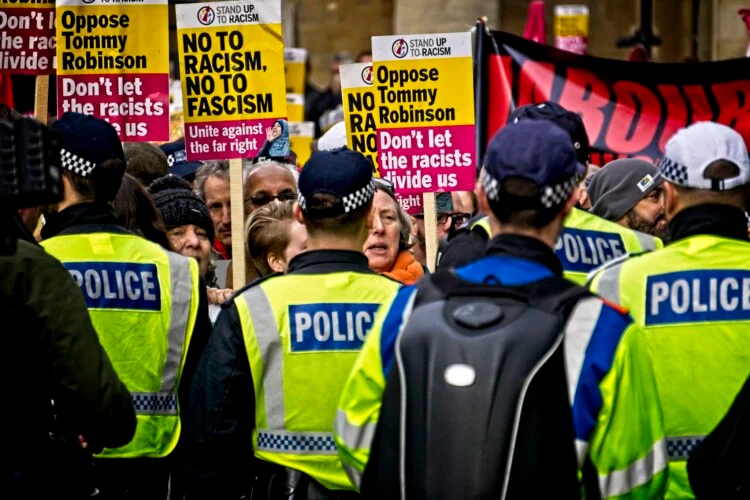The police organise special crowd management training for officers, and invite local groups to take part. Commander Louise Puddeford described the system used whilst being questioned at a meeting of the GLA Police and Crime Committee.
Committee chair Susan Hall AM questioned whether the right to protest under the Human Rights Act 1998 is threatened by new legislation making it easier to arrest those attending. Ms Puddefoot, T/Commander of Major Operations and Public Order at the Met responded, stating, “No, I don’t think arresting people who commit criminal offenses impacts on the right to protest.” The Commander went on to add that, “the vast majority of people attending are protesting peacefully,”
She explained that Serious Disruption Prevention Orders were introduced in 2024 by the then Government and she said they were specifically intended to clamp down on people who deliberately seek to cause significant chaos and disruption. However organised protests and demonstrations where organisers strive to work with the Police to minimise disturbances are permissible, even when there may be conflicting views of the topics at issue.
The GLA Police and Crime Committee heard that not only is there specific training at the Police College in Dartford for police who will be on duty, but senior officers also stage “table top” exercises to work out how protests can best be managed. She explained how they bring in members of community groups to involve them in how they hope to ensure the events are able to take place. There are representatives from London’s Jewish and Moslem communities as well as residents’ groups in the areas where marches and protests will take place.
This was, she said, a very successful way of demonstrating the hard work put in to prevent clashes and minimise disruption, whilst allowing people to exercise their right to freedom of expression on issues about which they feel strongly.
Whilst there has been a programme of regular and repeated demonstrations for which they can plan in advance, and many organisers are cooperative when planning their activities, Commander Puddefoot said they have to be flexible as there are times when a major incident elsewhere leads to a spontaneous gathering.
Asked whether the change in definition of unlawful support for proscribed organisations from “knowingly supporting” illegal groups by displaying placards or distributing leaflets to “reasonably expected to be aware of their illegal status” would help stop slogans and banners supporting terrorists, she added that the Police are not responsible for informing those taking part what is legal and what is not as that is the responsibility of the event organisers, but they strive to ensure everyone is properly informed before they set out.
She added that the police will only pull people out of demonstrations if it is absolutely necessary but will instead use intelligence post event to identify offenders and deal with them retrospectively.
